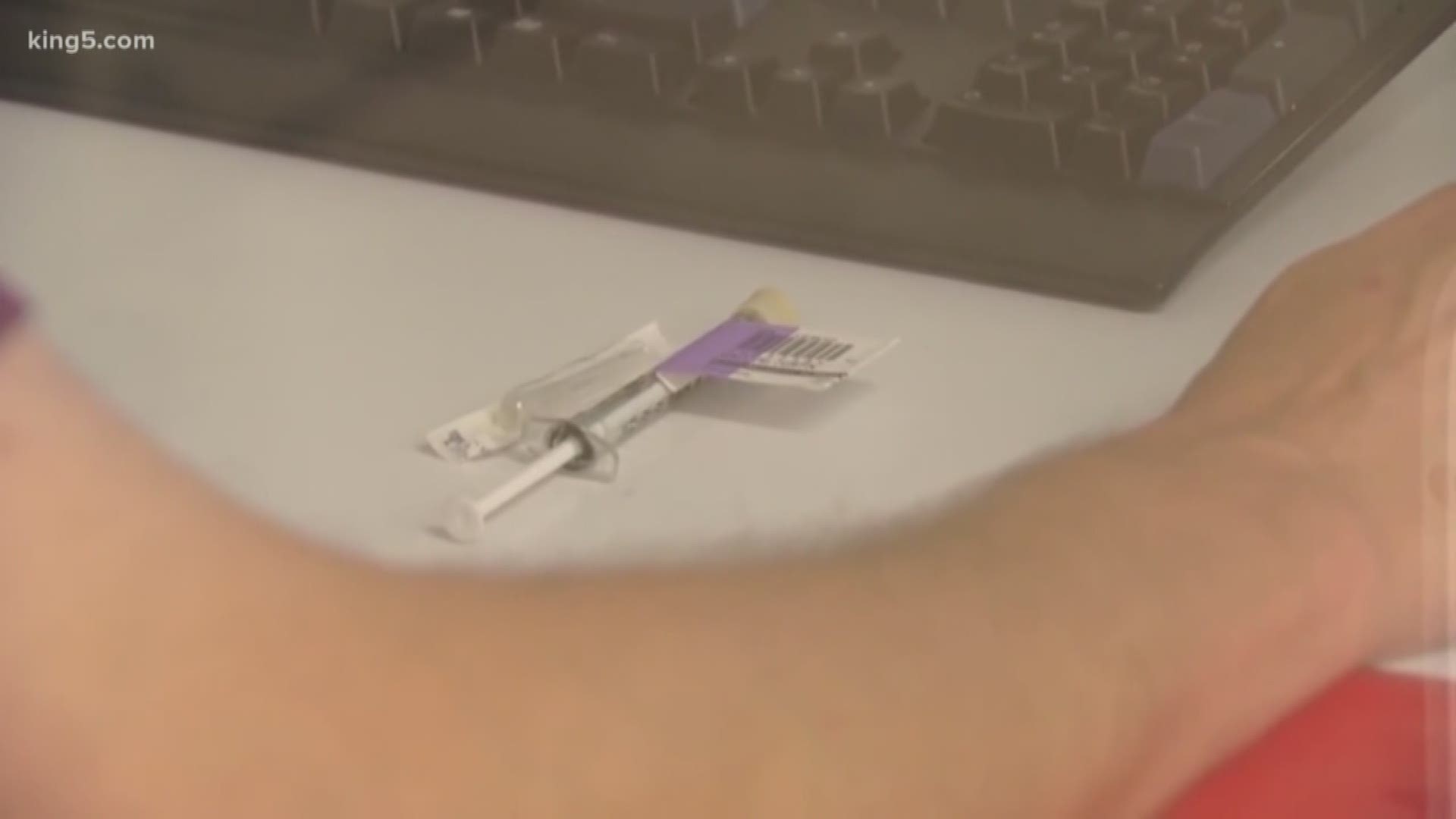SEATTLE — A lawsuit in Philadelphia continues to hold the attention of Seattle leaders following a district judge's ruling in favor of a proposed safe injection site.
U.S. District Judge Gerald McHugh ruled Wednesday that a nonprofit called Safehouse would not violate federal law with its goal being "to reduce drug use, not facilitate it."
It's a court case Seattle is monitoring closely as it considers its own safe injection site, or Community Health Engagement Locations.
"As the federal government continues to underfund badly-needed investments in mental health and substance use disorder, the opioid epidemic continues to grow, touching nearly every community and leaving cities like Seattle to become the safety net," a spokesperson for Seattle Mayor Jenny Durkan said in a statement. "It is unfortunate that the federal government continues to block Seattle and local governments from trying a harm-reduction strategy to address the opioid crisis.
"The City of Seattle continues to evaluate the Judge’s ruling, as well as the potential for an appeal by the Department of Justice. We continue to believe that holistic strategies recommended by experts, like Community Health Engagement Locations are one aspect of a harm reduction approach to addressing this epidemic. As we review our legal options, we will continue to work with our regional partners to address this serious crisis."
The City of Seattle and King County both supported Safehouse in the lawsuit.
“What an incredible ruling for the pursuit toward overdose prevention. I expect it will inform the conversation ahead, though, I expect the federal government will almost certainly appeal,” Seattle City Attorney Pete Holmes said in a statement.
An appeal of the ruling is likely.
"The federal court ruling on overdose prevention sites this week came as great news as we look to harm-reduction ideas to address the opioid crisis. Our current approach to the opioid crisis is not enough," Seattle Councilmember Teresa Mosqueda said in a statement. "We have seen overdose-related deaths increase over the years -- with 141 overdose deaths from mid-June through September of this year compared to 109 overdose deaths during the same period last year. We must treat this as the public health emergency that it is and use every tool in our toolbox to prevent overdose deaths. Overdose prevention sites save lives and are recommended by health experts, law enforcement, and health advocates across the nation."
U.S. Attorney William McSwain issued a statement following Judge McHugh's ruling.
“As Deputy Attorney General (Jeffrey) Rosen explained today, the Department of Justice remains committed to preventing illegal drug injection sites from opening," the statement read. "Today’s opinion is merely the first step in a much longer legal process that will play out. This case is obviously far from over. We look forward to continuing to litigate it, and we are very confident in our legal position.”
In February, the U.S. attorney for the Eastern District of Pennsylvania filed a civil lawsuit against Safehouse, claiming such facilities violate the Controlled Substance Act. The lawsuit asks a U.S. District Court judge to rule on the legality of Safehouse's plans for such a facility.
In 2017, the King County Board of Health approved a recommendation to open two injection sites. They would allow people to use drugs under medical supervision. Seattle is the only city to approve such a facility. Dozens of other cities around Puget Sound have banned them.
There was an effort to ban them in King County. However, the state Supreme Court upheld a ruling that kept the initiative that would have done that off the ballot.
In March, Seattle's Department of Human Services Interim Director Jason Johnson said that while injection sites are still believed to be a "component of a harm-reduction, public health response" to the addiction crisis, the department is "concerned about threats" of potential lawsuits and/or prosecution by the federal government.

